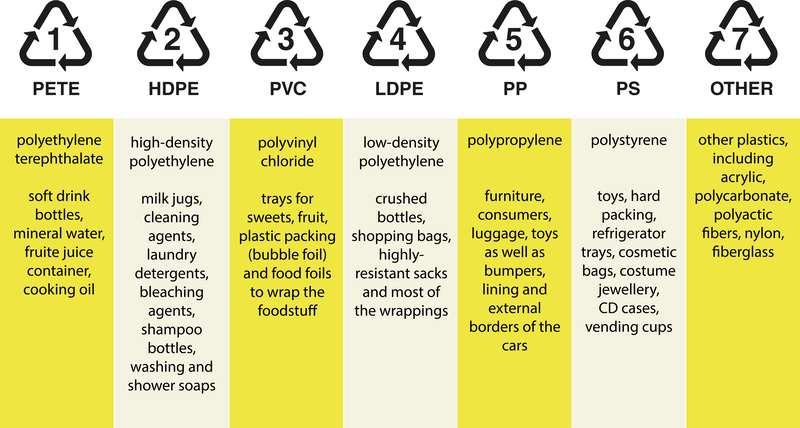How to Turn Bulky Waste Management Into a Budget Win
Bulky waste management often seems daunting for households, businesses, and municipalities alike. The process of disposing of large, unwieldy items--like old furniture, mattresses, appliances, and construction debris--can be expensive and environmentally taxing. Yet, with a strategic approach and forward-thinking decisions, bulky waste removal can not only become cost-effective but also a smart way to stretch your budget and contribute positively to environmental sustainability.
Understanding Bulky Waste: More Than Just Trash
Bulky waste is typically defined as materials that are too large or heavy for regular curbside garbage bins and collection schedules. This category includes items such as:
- Old furnishings (sofas, chairs, beds)
- Electrical appliances (refrigerators, washing machines)
- Large amounts of garden debris (branches, tree trunks)
- Home improvement waste (plumbing fixtures, doors, cabinetry)
Unfortunately, the default reaction is often to view these items as mere rubbish to be hauled away at a considerable cost. However, by reevaluating what bulky waste management means and exploring cost-saving strategies, anyone can turn bulky waste disposal into a budget-friendly endeavor.

Why Is Bulky Waste Disposal So Expensive?
Proper large item disposal involves factors that increase costs:
- Specialized transport and handling: Larger, heavier items often require different vehicles and teams for disposal.
- Landfill fees: Dumping large volumes or weights dramatically increases the cost per ton.
- Labor intensity: Removing, carrying, and disposing of such items is physically demanding and time-consuming.
- Environmental regulations: Some items, such as electronics or white goods, require specific processes to avoid pollution, leading to higher costs.
That doesn't mean you're stuck with high expenses. With a strategic approach, you can minimize, offset, or even eliminate many of these fees. Let's dive into actionable tips to make bulky waste management a financial win.
Proven Strategies to Save Money on Bulky Waste Management
1. Reduce Bulky Waste Before It Starts
The first rule in waste management--reduce! Before buying new items or starting renovations, ask yourself:
- Can the old item be repurposed or refreshed?
- Is there a compact alternative to what I'm removing?
- Can I borrow, rent, or share instead of purchasing?
The less bulky waste you generate, the less you'll need to pay for disposal.
2. Maximize Reuse and Donation
Your "junk" might be someone else's treasure! Consider these avenues:
- Donate to charity shops and shelters. Items like beds, couches, and appliances are often in high demand for non-profits and community groups.
- List on local marketplaces. Use platforms like Facebook Marketplace, Craigslist, or community boards to offer items at low (or no) cost.
- Host a garage sale. Not only does this clear out items, it can put money back in your pocket.
Donation not only reduces landfill fees but can also offer tax deductions for individuals and businesses.
3. Sell Scrap and Parts
Many bulky waste items contain metals, electronics, and parts with resale value. For example:
- Certified scrap yards pay by weight for metal from appliances or old bikes.
- Salvage yards may buy cabinetry hardware, doors, or antique fittings.
- Electronic refurbishers may pay for computers, TVs, and more.
Disassembling items may take effort, but the money recouped often outweighs the cost of simply throwing them away.
4. Leverage Municipal and Community Bulky Waste Programs
Many cities offer annual or even quarterly bulky item collection days for residential areas--often included in your existing waste management fee. Check your local municipality's website or recycling center for scheduled pickups, which could save hundreds in private hauling fees.
Some also provide:
- Discounted drop-off days
- Free electronic or appliance recycling events
These programs ensure responsible disposal at minimal or no extra cost.
5. Partner with Neighbors for Shared Bulk Removal
Pooling resources with others on your street or building is a highly effective cost-saving method. Bulky waste carriers often charge by trip or vehicle, not per item. Gather a group, set a shared pickup date, and split the cost--everyone benefits from lower rates and a decluttered space.
6. Optimize DIY Hauling
If you have access to a truck or trailer, you may be able to haul bulky waste directly to the landfill or recycling center. Before doing so:
- Check for residency requirements or disposal fees
- Sort items: Some facilities have free drop-off for recyclables or e-waste
- Remember to secure your load for safety and to avoid fines
By being strategic and making one efficient trip, you can significantly cut down on professional hauling costs.
Balancing Budget & Sustainability: The Environmental Win
The True Cost of Landfill Disposal
Discarding everything in landfill not only impacts your wallet but also increases greenhouse gas emissions, soil pollution, and community landfill crisis. Up to 60% of household bulky waste can often be reused or recycled--yet is still landfilled due to "one and done" removal habits.
Eco-Friendly Bulk Waste Solutions
Forward-thinking communities offer innovative solutions:
- Repair cafes and fix-it events: Community initiatives where volunteers fix broken appliances, bikes, and furniture.
- Curbside swap meets: Residents leave usable items on the curb for neighbors to claim.
- Local art projects: Artists and schools repurpose bulky materials for creative reuse.
These programs not only stretch your disposal budget but also foster a strong sense of community and responsible consumption.
Bulky Waste Management for Businesses: How Companies Can Save
For businesses, cost-efficient bulky waste management can improve not only the bottom line but also public image.
- Enlist circular economy partners: Work with recyclers, refurbishers, and donation organizations to minimize disposal fees and maximize return.
- Negotiate contract rates: Businesses generating regular bulky waste (e.g., property managers, construction firms) should seek volume discounts and recurring vendor contracts for improved rates.
- Engage staff: Promote re-use initiatives among employees, incentivizing them to suggest ways to sell, donate, or repurpose large items.
Hidden Opportunities: Turning Trash to Cash
Here are some innovative examples of turning bulky waste into a budget win:
- Furniture upcycling. Old dressers, tables, and chairs can be sanded, painted, and resold at a markup at local flea markets or online stores.
- Artistic transformation. Artists use scrap metal, wood, or glass from disposed items for sculptures, installations, or functional decor, generating revenue streams.
- Composting and mulch. Large branches and clean wood debris can be chipped and used for landscaping, saving costs on commercial mulch.
- Community workshops. Organize "fix, flip, and sell" days where community members come together to refurbish bulky items for local projects or fundraising.
Choosing the Right Bulky Waste Partner
Selecting a reliable, ethical, and cost-effective bulky waste disposal service is essential. Consider the following:
- Transparency in pricing: Avoid providers that hide fees or can't offer a clear quote.
- Recycling guarantees: Favor firms with high rates of reuse and recycling--inquire about their exact process.
- Local endorsements: Check reviews and seek recommendations from your local area or business groups.
- Insurance and compliance: Ensure anyone handling potentially hazardous or electrical waste is certified.

Essential Tips: Dos and Don'ts for Budget Bulky Waste Removal
- Do: Plan bulky waste removal during seasonal "free collection" windows.
- Don't: Dump waste illegally or curbside when it's not collection day--this can result in fines.
- Do: Use community message boards to coordinate shared pickups or donation drives.
- Don't: Assume all items are trash; research recycling and donation options.
- Do: Take photos and detailed descriptions when selling or giving away items online.
Conclusion: Unlocking Savings Through Smart Bulky Waste Management
Turning bulky waste management into a budget win is possible with the right mindset and approach. By rethinking waste as a resource, leveraging community and municipal programs, embracing reuse, and choosing ethical disposal partners, you'll not only save money but also contribute to a cleaner environment and more connected community.
So, the next time you're faced with a pile of old furniture, appliances, or renovation debris, don't just view it as an expense. Embrace these budget-friendly bulky waste management strategies, and see how they can transform clutter and costs into opportunities and savings for both your wallet and your world.
Frequently Asked Questions About Budget Bulky Waste Management
-
What is the most cost-effective way to get rid of bulky items?
Utilize free municipal collection days, donate items, or sell parts for scrap. Pooling resources with neighbors for a single pickup is also highly economical. -
Can I make money from my household bulky waste?
Absolutely! Items with metal, electronics, or antique value can be sold. Upcycling furniture and participating in local flea markets are also potential revenue sources. -
How can businesses minimize bulky waste costs?
Businesses should contract with circular economy partners, seek volume discounts, and involve staff in reuse and resale initiatives.
Ready to turn bulky waste management into a budget win? Start today with these actionable tips, and discover savings where you least expect them!
